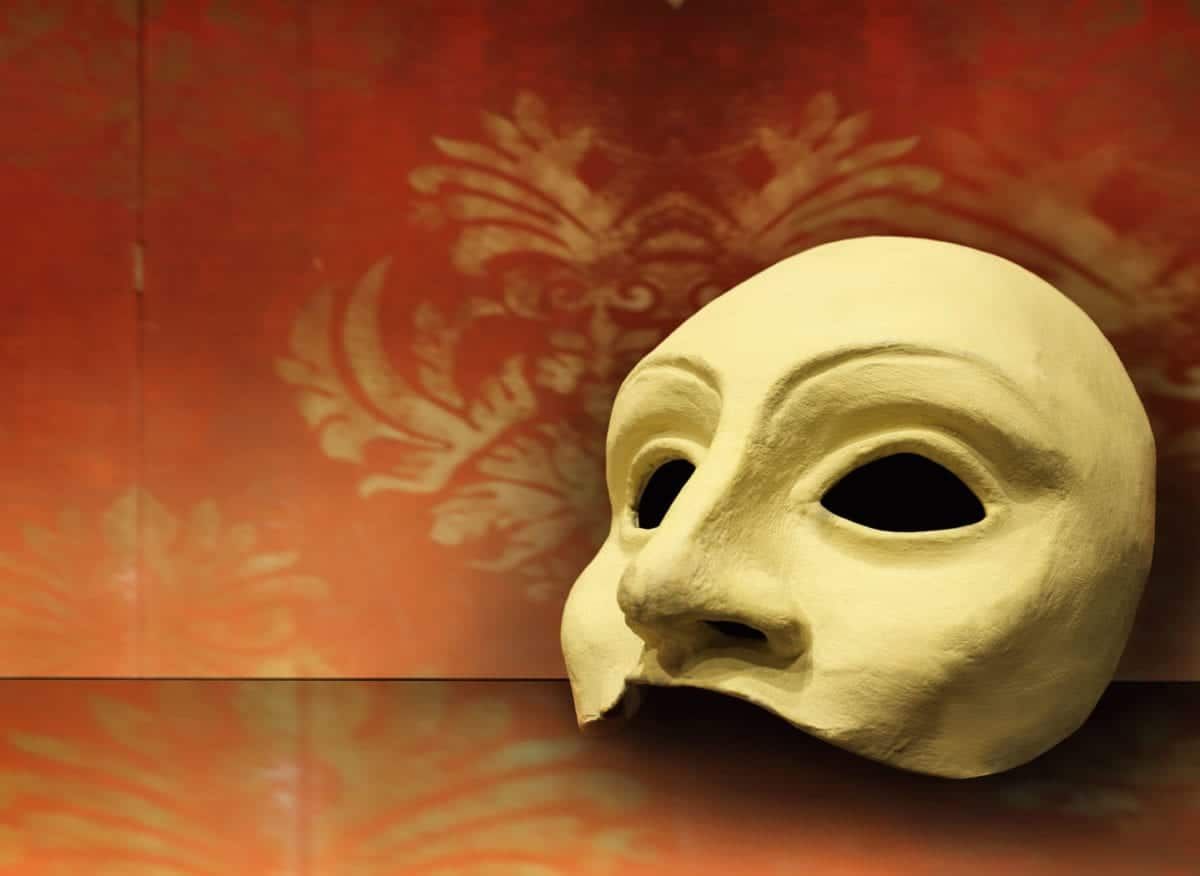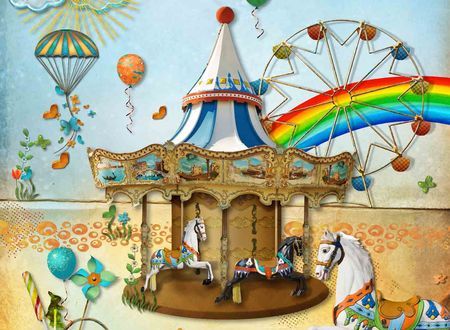Some questions have no answers, and many questions have no absolute answers. The other day, a young physician came to the ashram. Let’s call her Anu. She was somewhat depressed because of the situation at work.
Working as a doctor for an autonomous body in the armed forces, Anu had to dispense fake medicines. Her patients are defense personnel — the people protecting the country — and they are being given counterfeit medication? Perhaps the downfall of a nation couldn’t be any worse. Anyway, I’m not an umpire of morality nor a writer of politics; instead, I wish to take a spiritual view in all of this.
“Did you report the matter to your senior?” I asked.
“Yes, Swami,” Anu said, “They asked me not to worry. ‘These things happen’, they said. But, my conscience is not allowing me to continue. I’m giving my patients phony pills and I know they won’t be cured. I want to quit my job, but my family wants me to continue since it’s a government job with many perks and benefits, including a pension.”
“Don’t just quit,” I said, “blow the whistle. If you quit, the problem will continue.”
“But, I’ve only told you one of the problems,” she said. “They are also taking kickbacks and commissions from pathology labs where patients are often referred for tests. Everyone is corrupt. If I report it to the Commanding Officer, who knows what I may have to go through? Further, all my doctor friends who are working in other organizations tell me that I’m being pedantic. They tell me I’m oversensitive. It’s common practice at their workplace, too, they say.”
“Taking commissions may just be malpractice, but giving fake medicines is a downright crime. It’s an unethical, immoral and illegal crime; it’s a crime against humanity. Silence is not always golden, Anu. Silence encourages the criminal. If you keep quiet, you become an accomplice to this misdeed.”
“But, even if I report it, Swami, they may do something really bad to me. Who knows, I may even be fired, whereas everything will go back to the way it was at their end. Oh, I’m so confused. I wish my family understood my quandary. I would feel a whole lot better.”
Her moral dilemma was: If she blew the whistle, would anything change at all, and was it worth risking everything?
I asked Anu to write down her principles, to write down what she stood for, and to live accordingly. Her situation is a complicated one; her questions are valid. She has to choose whether she wants to continue with a burden on her conscience, hoping that one day she won’t feel bad about it anymore, or, expose the wrong and put up with the consequences that could range from a suspension to anything unimaginable. Meanwhile, innocent patients will continue to suffer.
I don’t believe that morality is absolute, but when you violate your principles, you place upon yourself the same burden as an immoral act. You can’t escape from yourself. You can only forgive yourself if you don’t repeat it. I always encourage everyone to write down their principles, their top three principles. It always helps to know what we stand for. Decision-making becomes somewhat easier then.
Mulla Nasrudin was the magistrate in a local court. The plaintiff’s lawyer presented their side of the case, and Mulla announced a short recess. Immediately upon his return, he gave a judgment in favor of the complainant.
“But, you haven’t even heard our argument!” cried the defense counsel.
“Be quiet,” said Mulla. “I’ve already made up my mind after hearing the plaint. Hearing your plea now will only add to my confusion.”
The truth is, life will confuse you. It will put you in a dilemma. You will have to make choices, make decisions. You will need to make up your mind. There’s little wisdom in putting it off. The course of history was changed by those who challenged ‘common practice’, who refused to withstand oppression, who decided to stand up, and not by those who kept quiet. Nothing changes unless we act on it.
A noble life may have its share of stresses and challenges, but it does bestow inner peace and extraordinary strength. There’s no room for depression in it. Everyone has to face difficult situations in life. And there comes a time when you can’t delay a decision any further, when you must pick a side and clear the dilemma. At that time, if you are confused, find a peaceful spot and write down what matters to you in your life. Thereafter, make a choice that supports your principles and your priorities. Obstacles will become gratifying challenges, and the pursuit will become a fulfilling journey; your life will gain new meaning then.
When you take up a cause bigger than yourself, the whole Universe summons itself to be by your feet, at your disposal. This is the irrefutable law of Nature.
Peace.
Swami
Editorial Note
Course
Art of Meditation
Free yourself from suffering and live life to the fullest. Learn the yogic technique of meditation in 4 days (and master it over a lifetime)
Here are 7 ways to deal with life when presented with a moral dilemma. These insights will not only give you clarity but also give you the confidence to do the right thing and boost your self-esteem. Spend a few minutes pondering on them and see which ones you want to adopt in your life.
How can we avoid being in moral dilemmas?
The discovery of your purpose in life or the truth of your life is akin to finding your voice, being alive one more time, it’s like being born again. The czar of meaninglessness has spared you, it feels. Nothing is more frustrating and boring than being directionless. That’s where purpose in life comes in; it gives you direction. I’ve said a few times that to experience fulfillment our energy must be invested in some creative pursuit, that you move a step closer to your life’s purpose when you undertake something bigger than yourself.
I have also spoken on multiple occasions saying that if you consciously choose to work below your potential, you will feel frustrated and unfulfilled. The question remains: how to find your life’s purpose?
The answer is rather simple, here: Care about something.
“A person’s life can be meaningful only if she cares fairly deeply about some things, only if she is gripped, excited, interested, engaged.” Read more here.
How to deal with the moral dilemma surrounding the suicide of a loved one?
Suicide is one of those things: difficult to come to terms with. The ones left behind are never released from the rattling chains of “why” and “what-if” feelings, that, perhaps they could have prevented it when they noticed suicidal signs. At almost every event, I meet someone who is trapped under the giant rock of guilt because one of their loved ones decided to take their own life. It’s sad and one of the most challenging parts of my vocation.
I wish I could tell them that it’s not their fault. In fact, I do tell them. No one is responsible for a soul’s departure from this world, not even the person committing the suicide, or a person with suicidal signs because my view is that while it may seem one has done it out of choice, in reality, life or death, such an extreme step represents the mind’s failure (and not a conscious selection) to convince itself to remain committed to life. Suicide or suicidal thoughts are not a choice but a fixation. Read more here.
Moral dilemma and its relation to happiness
Most people struggle to sleep peacefully at night because their mind is racing in different directions. They are constantly thinking about things that are irrelevant. Anything that you hold in your mind long enough will manifest; good or bad both. It is harder to hold onto positive things than negative things, that is why most people have trouble manifesting positivity in their lives.
Being happy itself is the third action in the path to happiness. Happiness is a choice and commitment. It is not dependent upon what you have or don’t have. Listen to this discourse by Om Swami on how being happy is a choice on the path to happiness. Read more here.
Moral dilemma and the path of truth
More than strict compliance to a certain principle or rule, one ought to consider the time, place and circumstances. This leads me to the crux of the matter. There are two types of truths. Pure and impure.
With impure truth, you are merely concerned with stating what you know as the truth without reflecting on the repercussions of your statements on the other person. I once read a quote, “Some people are so brutally truthful that it almost seems they enjoy more being brutal than being truthful.” Stating the truth doesn’t mean one has to use harsh or strong words. You can also get your point across with soft words.
When you speak pure truth, however, you pause for a moment to ponder over the impact of your statements. Pure truth only springs from noble intentions and compassionate sentiments. In the case of pure truth, you are not trying to make some point. Instead, you gently state the truth (and not merely your opinion) keeping the benefit of others in mind. Read more here.
How do lies feed our moral dilemma?
Society expects you to lie if you are to fit in. In the name of conforming to norms, you are expected to be diplomatic. Being diplomatic is not just about being tactful, instead, most of the time, it is about tactfully, tastefully, coating the truth with the flavor the listener desires.
If a personal acquaintance calls you saying he wants to meet you but you don’t feel like it, you are expected to make up some excuse. You are not allowed to say, “I don’t want to see you.” It is somewhat obligatory to lie in the name of being polite. You are more likely to say something like, “Oh, I would love to but I have a commitment elsewhere,” and so forth. The funny thing is, the other person knows you are not stating the truth but this is what they are happy to hear as opposed to the real truth. Read more here.
The moral dilemma surrounds our day-to-day responsibilities, how do you lead a fulfilling life then?
Many among us feel that our current life is not the best kind, that we are working towards something else, some moment after which we won’t have to do things we don’t like. The day we reach that shore, life will be all sunshine and rainbows and we’ll spend every second of our time doing things we fancy, love or dream of. As if happiness and fulfillment is a certain stage where we’ll only be surrounded by people who love us and whom we love, when there’ll only be abundance, no stress, conflict or diseases, only joy and bliss, only peace and happiness.
If you wish to live your ideal life, first devote every ounce of energy and enthusiasm to your present one. Before long, you’ll know your purpose in life which in turn will lead to a deep sense of fulfillment. Read more here.
How does self-reflection help with moral dilemma?
The best way to overcome fear-based self-doubt is to write down your answers to the following questions:
a. Why do I want to change?
b. Am I ready to embrace change?
c. What is the worst that can happen?
d. Do I feel competent enough to handle the worst?
Reflect on your answers, prioritize, and act accordingly. Read more here.
A GOOD STORY
There were four members in a household. Everybody, Somebody, Anybody and Nobody. A bill was overdue. Everybody thought Somebody would do it. Anybody could have done it but Nobody did it.
Don't leave empty-handed, consider contributing.It's a good thing to do today.









Comments & Discussion
13 COMMENTS
Please login to read members' comments and participate in the discussion.